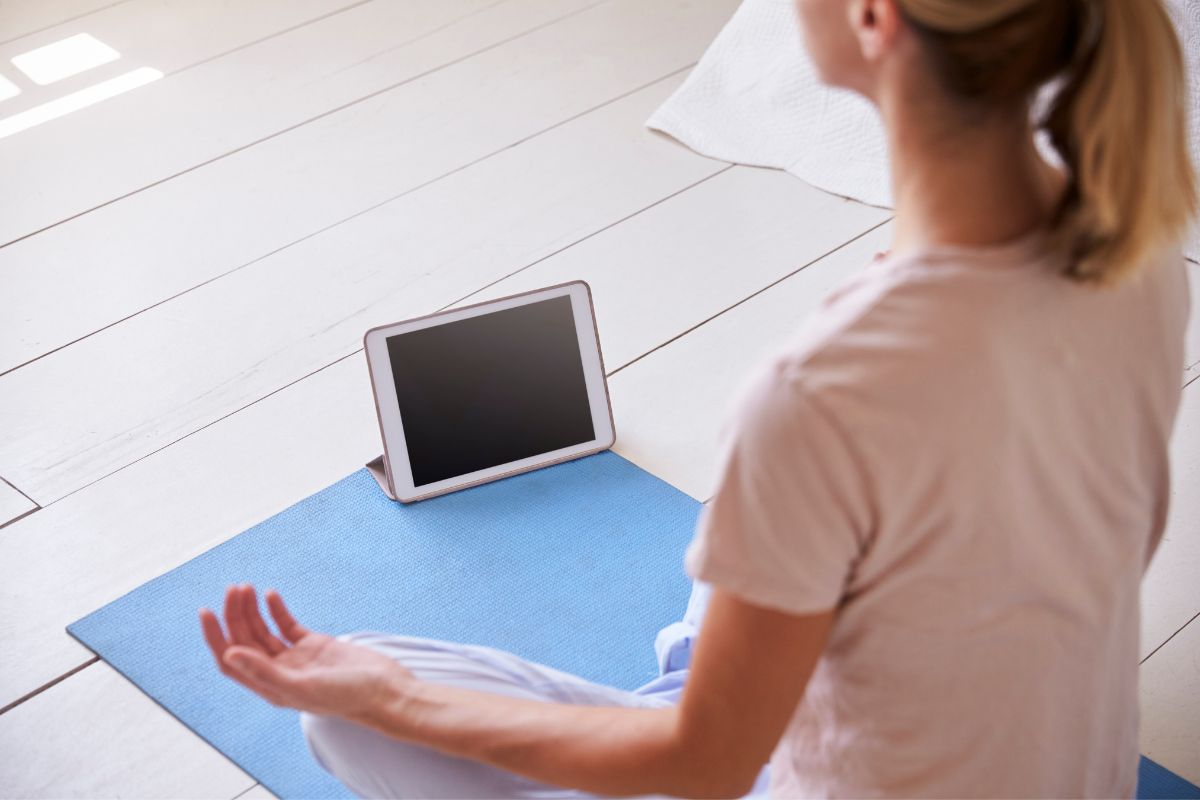
Meditating is one of the most effective ways to redirect and moderate your thoughts. But, given how busy and chaotic life can be, this may prove to be a very big challenge. Modern technology has made it much simpler to concentrate, refocus, and center oneself by providing you with meditation applications that are simple to use and intuitive.
In general, these meditation apps can help you relax anytime you need it, regardless of whether you are a novice or an expert in the field of meditation. That isn’t the only benefit you can get from using mediation applications, however. Daily practice can help you learn to tune out the distractions of contemporary life and be fully present in your current life.
Even though there are several guided meditations that you can find online, meditation apps can help to ease the process, allowing you to reach new heights in your meditation abilities. Here are the types of mediation apps that are available to choose from which can help you get your life in order.
1. Chakra Meditation Apps
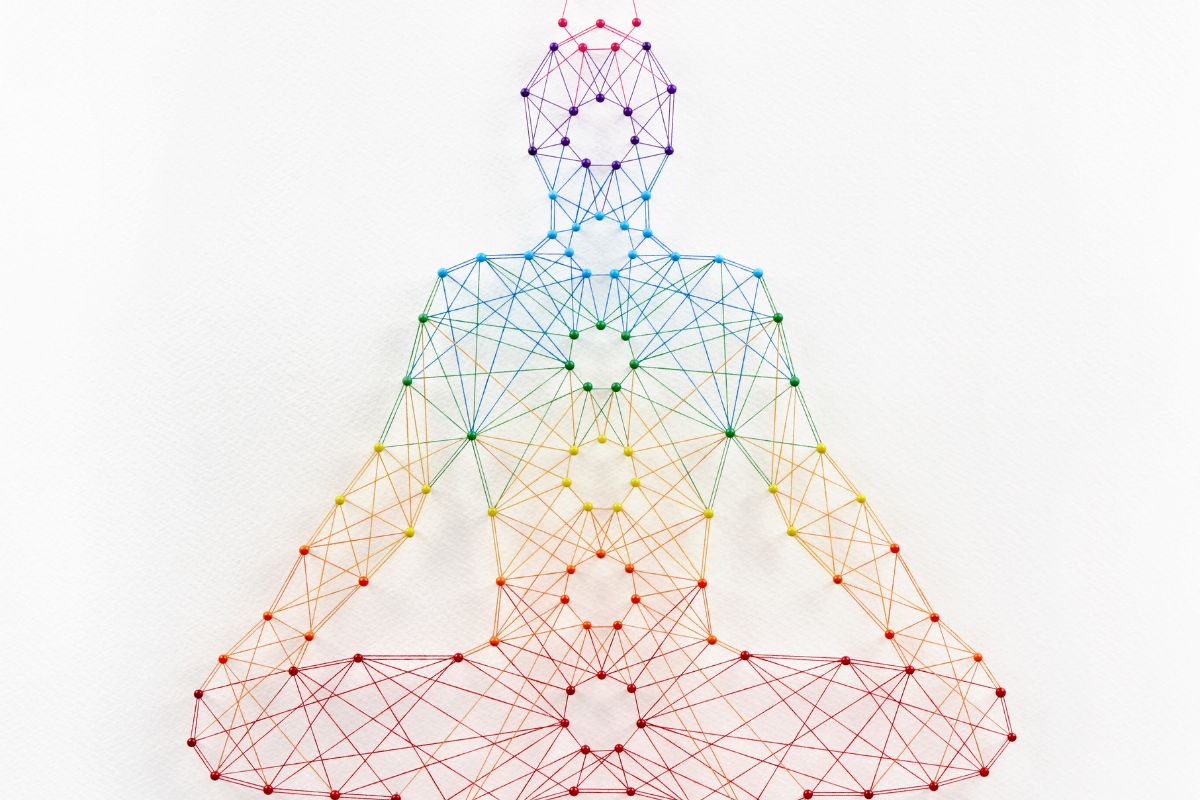
Chakra meditation apps aim to help you unblock obstructed chakras as well as channel the power of these energy points that are situated throughout the body. They may be utilized for a variety of purposes ranging from inducing peace and relaxation to assisting in spiritual enlightenment. A self-monitored exercise must be sufficient if your objective is to feel better balanced or calm, or even if your aim is to find a much easier way of falling asleep.
If you have more serious ambitions, it is better to learn from those who have gone before you with the right app.
2. Insight Meditation
Participants in insight meditation typically make it a goal to improve their minds via the development of virtues like kindness and knowledge. To achieve this, it is necessary to concentrate on the breath while also being conscious of and documenting all the physical and mental feelings that come during insight meditation. These meditations, in addition to assisting us in achieving tranquility and mental solitude, can also help to improve our sentiments of well-being, contentment, as well as compassion for others.
The wonderful thing about meditation is that it does not have to be either peaceful or insightful in nature. In reality, many meditation approaches, including mindfulness meditation, include the components of different types of meditation.
3. Vipassana

Using the Vipassana meditation technique, you may learn to practice self-observation by concentrating on your inner self in a nonjudgmental manner. Relaxation, mindfulness, and a greater feeling of inner calm may all be enhanced by using these Vipassana meditation applications. Vipassana mindfulness, like all other kinds of meditation, is helpful for both the brain and the body.
It differs from other forms of meditation practices, such as breathing exercises or visualization, in that it focuses on the body, whereas these techniques need you to concentrate on a certain task or picture. In order to achieve anything particular, you must proactively teach your mind and body.
4. Buddhist Meditation
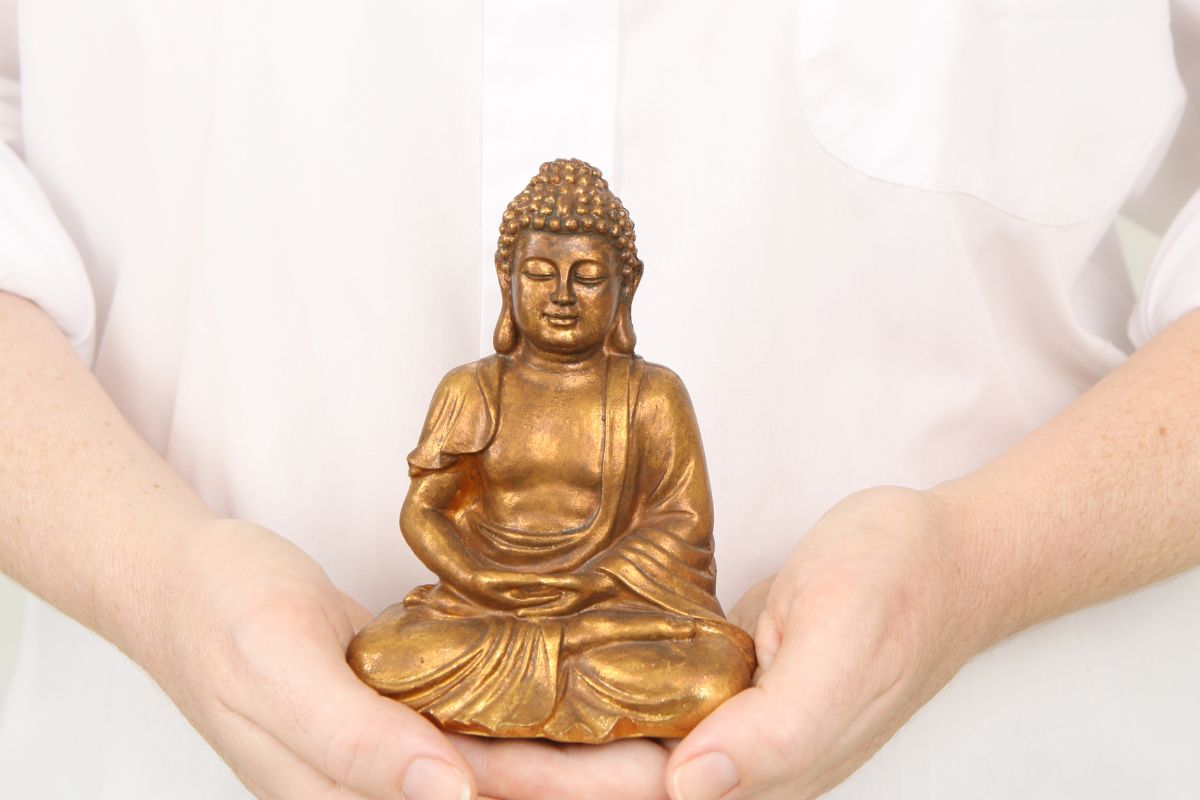
Buddhist mediation applications allow you to observe your surroundings from a calm and comfortable position. Buddhist meditation can also help you concentrate on your breathing, letting ideas and sensations pass through you without disturbing the mind; all while recognizing and acknowledging your emotions and ideas without hanging on to them. It emphasizes cultivating tranquility, clarity, and equanimity in one’s life.
The development of these traits may eventually lead to a profound sense of inner serenity if done with the correct direction and dedication. This practice, when used in conjunction with vipassana (consciousness) methods, may result in deep insights and spiritual enlightenment. Initially, mindfulness meditation is largely nondenominational, meaning that it may be done by anybody, regardless of their religious beliefs.
5. Calming Meditation Apps

If you’re searching for a meditation app that’ll help you feel at peace, more relaxed, and tranquil as you meditate, look no further than this type of meditation app. In general, calmness meditation apps are extremely adaptable and contain less complex challenges and activities. As such, they might be beneficial in elevating signs of anxiety.
This type of meditation requires you to concentrate on doing a range of tasks every day to guarantee that you remain focused throughout the day, regardless of whether you are dealing with anxious thoughts or a lack of attention. An example of this application is “Calm” which offers a 7-day free trial period, as well as an annual subscription option. You may also buy a lifetime mediation subscription, which would provide you access to the app indefinitely.
This application includes relaxing background music as well as short meditations that can be used to help you relax.
6. Music Meditation Apps
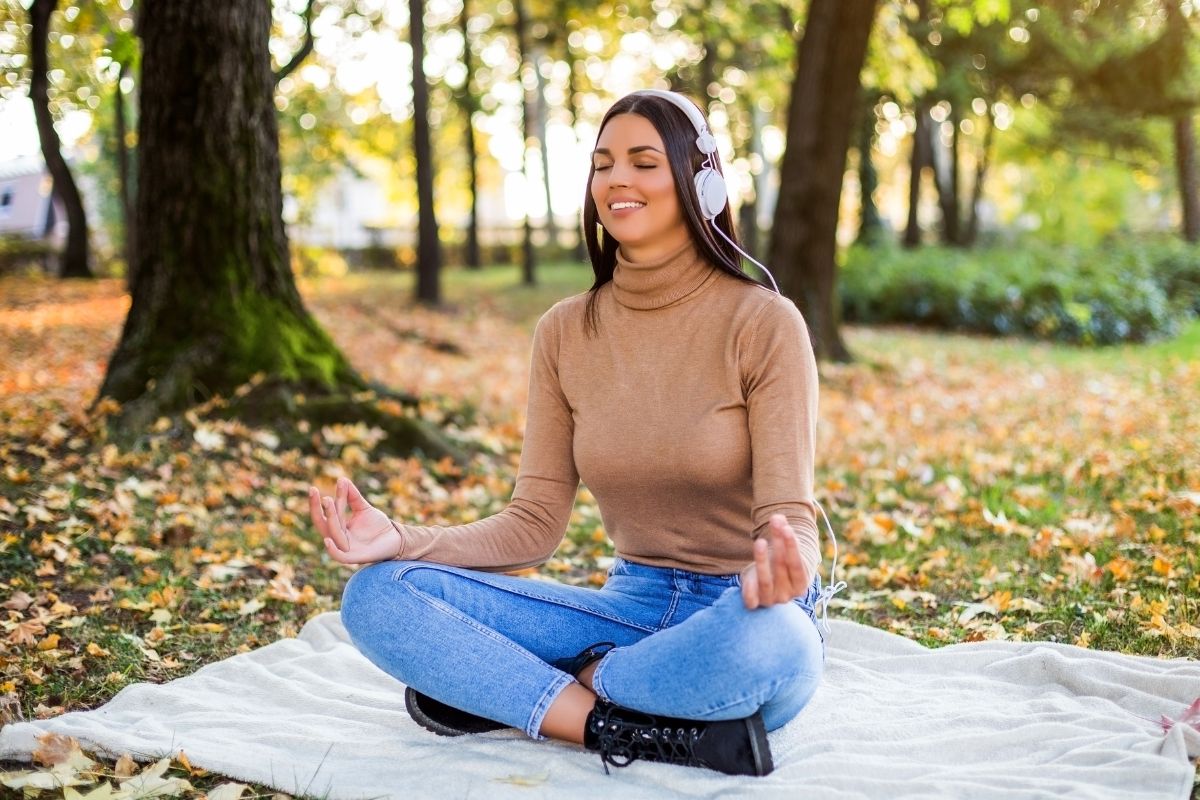
Generally speaking, music is the most important component of any music meditation session. During your meditation practice, you may listen to soothing sounds as well as music snippets while maintaining complete control over the volume. Most of these apps come with different kinds of sounds and timers to help you create a more personalized meditation session.
One example of such an app is “Relax, Yoga”. With this music-focused meditation app, you can listen to relaxing sounds that’ll help you concentrate on your meditation while keeping you busy. It has a built-in timer for meditation, as well as other basic functionality.
Furthermore, it features a simple, easy-to-navigate design that is free of all of the extraneous stuff that slows down the app; it is clear and concise.
7. Heart Rhythm Meditation Apps
These types of meditation apps are ideal if you want to do meditation sessions where you concentrate on your breathing patterns or to help you calm down and reduce anxiety panics. Several applications offer access to over 1000 meditations that you may access to focus and practice conscious as well as rhythmic breathing. Mediations may also be filtered depending on the kind of mediation you are interested in on a particular day.
You may, for example, filter the library based on meditations for sleep, stress, self-esteem, and other topics of interest. You may also filter it depending on the length of time or certain aspects such as relationships, spirituality, or kids.
8. Sleep Meditation Apps

These types of mediation applications come with hundreds of guided meditations in most of their libraries to ensure that there are options for everyone, whether beginners or experts. Such meditation apps can help you sit comfortably while meditating and may also include hints to help you deal with external noises. If you’re the type of person whose thoughts get lost in anxiety (or overloaded with a long list of things to do) the minute your head strikes the pillow, this should be your go-to meditation app.
One example of such an application is Headspace. It provides a two-week free trial period, after which you may choose between a monthly or yearly subscription, depending on your preferences. The program is user-friendly and provides a great deal of help to those who are just getting started.
Because the screen is muted, there is no glaring, headache-inducing bright light to contend with.
9. Mindfulness Meditation Apps

These types of meditation apps are intended to make mindfulness more accessible to people of all ages and backgrounds. They comprise activities for both children and adults, and they are intended to improve user performance in both the classroom and the workplace, respectively. The majority of meditation sessions are aimed at decreasing stress and enhancing mental health in some way.
It also makes it possible to meditate in groups, as well as in peer groups. For mindfulness meditation, you may download an application like smiling mind. It is easy to get started and will assist novices on their journey towards meditation.
Also included are resources and instructional materials on a variety of other ways to improve one’s lifestyle outside of meditation, including eating, learning, as well as other activities.
10. Anxiety Meditation Apps
Anxiety mediation apps are designed to enhance your overall mental health and wellbeing. They are ideal for people looking to reduce stress and anxiety while also improving their sleeping patterns. Because they are focused on psychological health and well-being, these apps are more than simply a meditation app; it is an effort to enhance your total wellbeing by aiding in the battle against anxiety, pleasantly motivating you, and increasing your productivity.
The goal of such applications is to encourage people to include mindful meditation in their regular routines. You are forced to backtrack, slow down, breathe deeply, as well as reflect to de-stress, enhance thinking, and adjust your viewpoint
11. Visualization Meditation
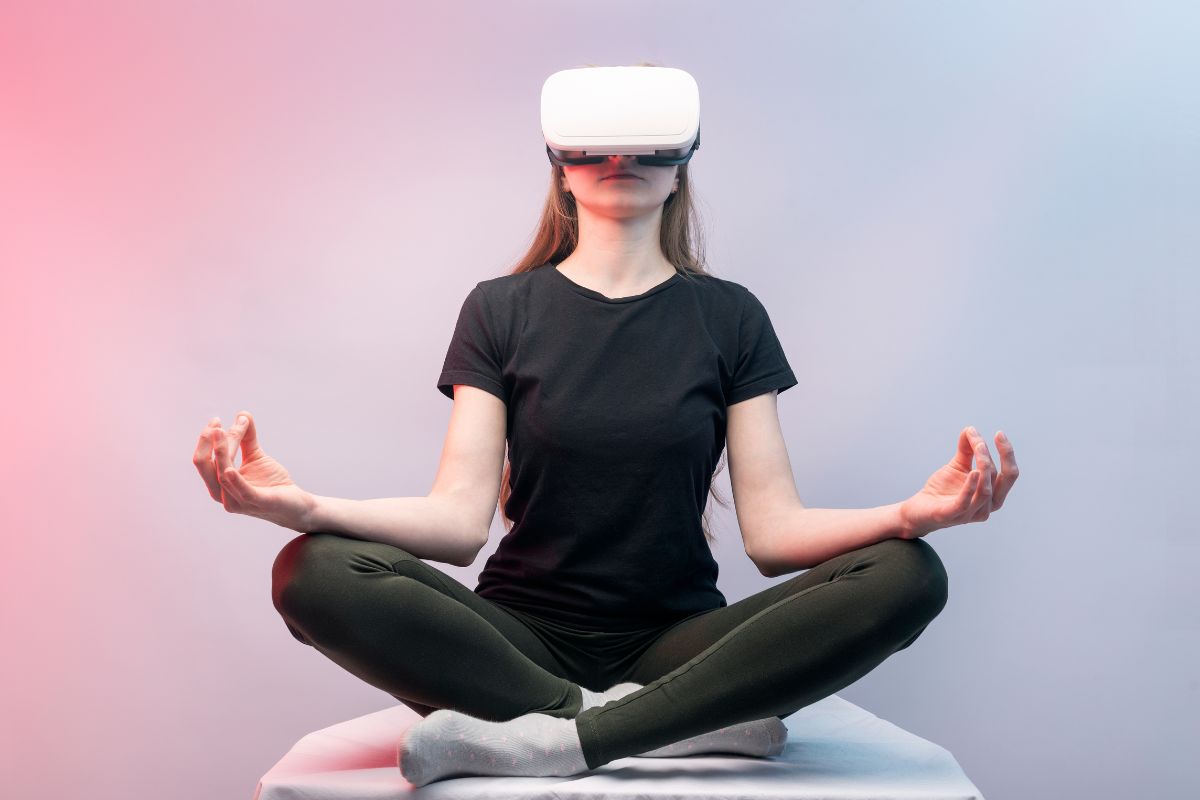
With this type of meditation, you are generally invited to visualize something particular in your mind. It is effectively substituting a mental image for the object of attention, as opposed to the breath. It may seem difficult to some, but it is actually no more difficult than remembering the face of a friend vividly and spontaneously without exerting any effort.
The same is true for meditation. By creating a certain vision, you not only have the opportunity to watch the mind but also to concentrate. Some of the benefits of engaging in such exercises is learning how to concentrate, thinking more quietly, and resting more peacefully.
Ideally, it will help you establish a routine for mindful meditation throughout your life.
12. Guided Meditation Apps
Generally, guided meditations may be used wherever and whenever you need them: at work while walking, getting on a bus, or when you’re coping with intense emotions. During guided meditation, you are directed through the fundamental stages of the practice by a teacher, who may be present in person or through meditation software like Headspace.
It is especially beneficial for novices to engage in this sort of meditation, since the instructor is knowledgeable and trustworthy, and their supervision may be crucial in ensuring that those who are new to the practice obtain as much benefit as possible from the experience.
The majority of guided meditations have a consistent structure: the instructor describes how the mind operates during meditation, guides you through a specific meditation method, and afterward proposes ways to incorporate this skill into your daily routine. An example of such an app is “Let’s Meditate”. This app is straightforward and simple to use, and it promotes great information for guided meditation.
It offers a large range of free lessons as well as features. In order to practice your favorite meditations while on the road, you may download sessions for offline use. Also included are relaxing and professional tracks to make your meditation sessions even more interesting and enjoyable.
Users are agitated rather than relaxed, according to the company, which is why they do not display advertisements or need sign-ups.
Frequently Asked Questions
How Do Meditation Apps Work?

Meditation applications can help you learn and master a variety of meditation techniques such as concentrated breathing exercises, gain clarity of mind, and stay present. They accomplish this by providing a variety of technological tools like mood monitors, professional guided meditations, meditation timers, as well as a network of other meditators.
What Are the Advantages of Using a Meditation App?
With exercises and professional instruction, using a meditation app to practice meditation may help you connect with your body and remain in the present moment. Using meditation to gain greater awareness has been found to aid in improving your ability to concentrate on activities in daily life and also your ability to effectively digest new knowledge. Additionally, using a meditation app while practicing your meditation skills will help you cultivate a peaceful and concentrated mindset in your everyday life.
Are Meditation Apps Really Worth It?
Despite the fact that self-meditation or the use of more basic internet guidelines can assist you in your meditation efforts, apps have the benefit of giving intuitive features, such as trackers, that can help you stay responsible, motivated, and grow over time. Most of them also provide professional help at the push of a button if you have any concerns while you are practicing which is a great way to get started.
